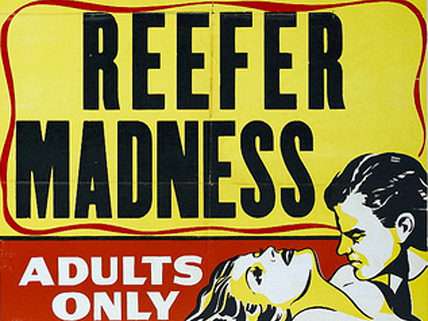Chicago Opens First Marijuana Clinic, Despite Total Lack of Actual Legal Marijuana

Illinois' first medical marijuana clinic opened in Chicago on Wednesday. Although Chicagoans lined up outside, no one left with a dime bag or even a prescription.
The clinic is called Good Intentions LLC, and is operated by Dr. Brian Murray, a general practice physician, and Tammy Jacobi, a registered nurse. The duo previously launched a similar clinic in Michigan.
Murray and Jacobi are putting roots down in response to The Compassionate Use of Medical Cannabis Pilot Program Act. Gov. Pat Quinn signed the law on August 1. However, the medical marijuana law does not take effect until January 1 of next year. Furthermore, Illinois citizens will not be able to legally purchase the medicine until mid-2014.
Jacobi stated Good Intentions opened so far in advance, in part just to inform people about the program. Likewise, she explain that the clinic will build the "bona fide physician-patient relationships" that the law requires. She said:
We're going to be establishing relationships with our doctor. We're encouraging patients to contact primary doctors first but we want people to know that we're here, they can talk to us, find out if medical marijuana may be right for them.
According to WGNTV, a local station, Good Intentions has received "over 700 calls over the last couple of days."
"None asked to buy marijuana on the spot," said Daniel Reid, a spokesman for the company. "But some who walked into the office Wednesday simply had questions about the law or wanted to find out how to open a distribution center."
On whether or not Good Intentions will ever actually be able to distribute the medicine, Dr. Murray told the Chicago Tribune, "that's up to the state." Currently, the company cannot issue prescriptions themselves, but instead medical cards, which act as recommendations for prescriptions.
The Illinois law will allow patients to receive up to 2.5 ounces every 2 weeks from a dispensary, but only for a list of 40 conditions, "including HIV, AIDS, cancer and other diseases. It is far more restrictive than laws in some other states, which allow use of the drug for catch-all categories like chronic pain," writes the Tribune.
Strictness seems to be a deliberate aspect of the law. "We've seen abuse in other states, particularly in California, so there's a lot of restrictions in there to pacify the more conservative, cautious members of the legislature," according to political analyst Laura Washington.
